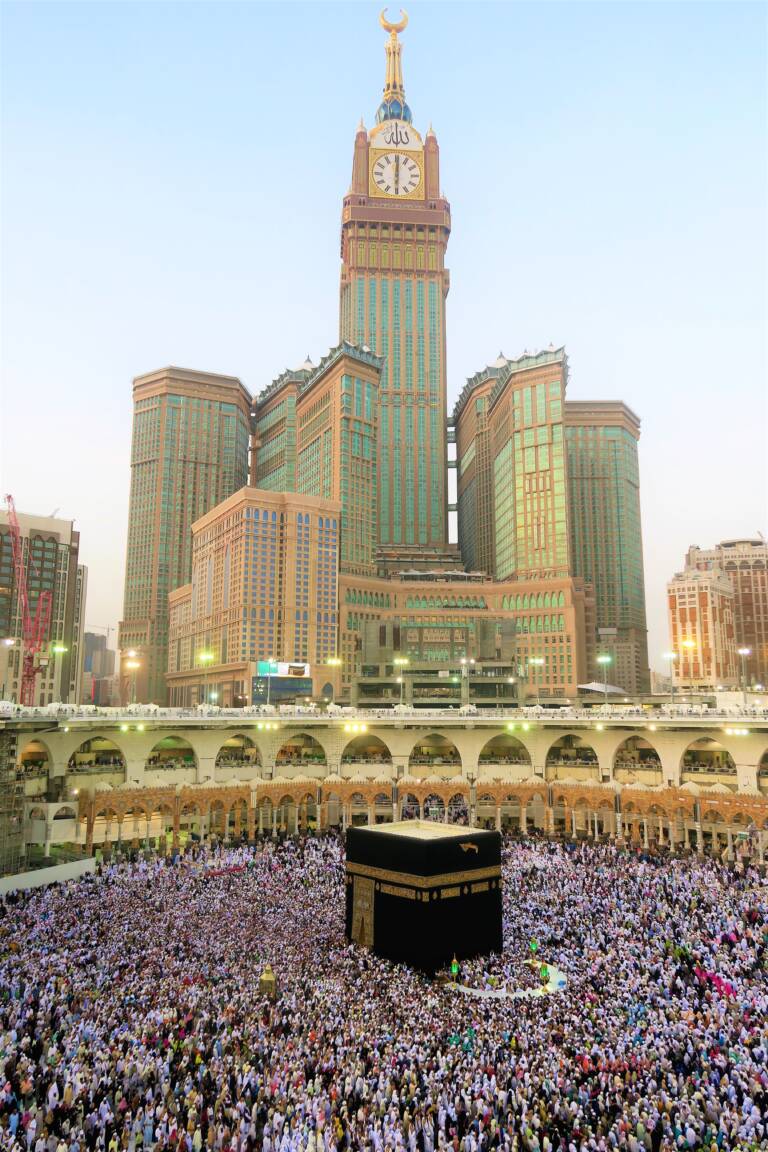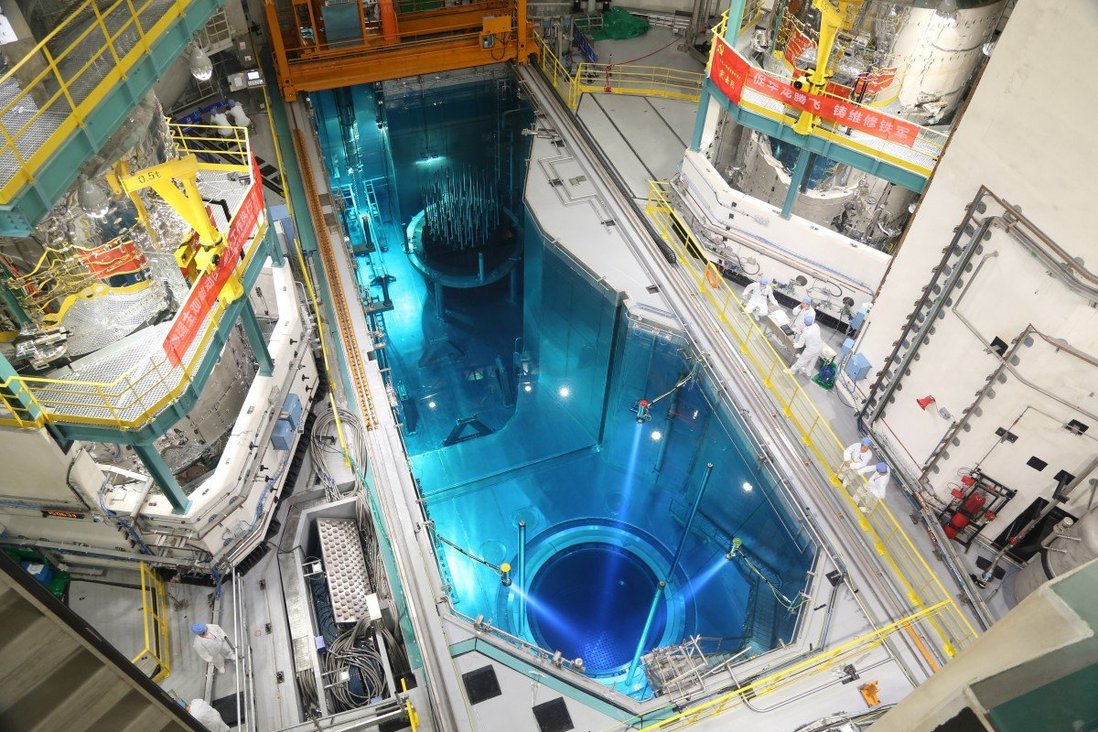Chinese nuclear reactors in Saudi Arabia. What if it was all just a game of raising Riad?

Saudi Arabia announced, as reported by the Wall Street Journal (WSJ) on August 25, that it is evaluating a Chinese bid to build two 1,000 MWe PWR Hualong One nuclear power plants.
The reason why this is not new is that already in February 2019 Saudi Arabia had hinted at the possibility of choosing China if the US had not exerted great pressure to favor Westinghouse in exchange for the approval of uranium enrichment.
Regarding Saudi Arabia's nuclear program, Reuters reported that the state-owned China National Nuclear Corp (CNNC) has bid to build a nuclear facility in Saudi Arabia's Eastern Province near the border. with Qatar and the United Arab Emirates.
China's Foreign Ministry did not confirm the news, according to Reuters, but a ministry spokesman told a news briefing that: "China will continue to conduct mutually beneficial cooperation with Saudi Arabia in various fields, including l 'civil nuclear energy, strictly complying with international non-proliferation obligations'.
China and uranium exploration in Saudi Arabia
Separately, China has helped Saudi Arabia explore domestic uranium deposits and is reportedly aiding Saudi plans to build a hard-rock uranium mining system and produce yellow cake. nuclear fuel. A first step towards enrichment.
Last April, the NEA/OECD Red Book reported that Saudi Arabia has spent more than $37 million exploring for deposits over the past six years, but has only managed to identify minerals that would be "grossly uneconomic" to extract. . The deposits are only "inferred", the least reliable method of identifying subsurface minerals. Some of the hard rock deposits that contain uranium, mixed with other minerals, are more than 1,000 meters deep.
Negotiate with a point
According to the WSJ, Saudi officials told the paper that the purpose of raising the issue of China's purchase of reactors was to persuade the Biden administration to seek a compromise on non-proliferation requirements.
The reason this matter has attracted media attention is that in March of this year, Saudi Arabia asked the United States for assistance with its nuclear energy program. The Saudis have also demanded security guarantees from the United States in relation to external threats, such as Iran, and have also opened the door for normalization of relations with Israel.
Saudi Arabia's desire for enrichment stems from the idea that it cannot appear weak compared to its neighbor Iran. Having enrichment, with its potential path to nuclear weapons, would be a Saudi deterrent to expanding Iran's nuclear program, even though relations between the two countries are now normalized and both are part of the BRICS.
The three-part Saudi proposal can be seen as part of a larger effort, through multiple vectors, to curb Iran's nuclear thrust, as evidenced by IAEA reports that Iran has enriched U235 all the time. 84%, which is military grade HEU. The Biden administration has been figuring out how to respond to Saudi requests and has sent officials from the Department of State and Homeland Security to meet with their Saudi counterparts.
President Biden has warned that a deal is not pending and talks could take time to reach an agreement that satisfies all parties. Israeli government officials are reportedly divided on the enrichment issue, but are keenly interested in normalizing relations with Saudi Arabia.
So far, the United States has not publicly stated that it plans to change its nonproliferation policy, based on a long-standing practice that agreements under Section 123 of the Atomic Energy Act require that nations eligible for exports of nuclear technology by US companies abandon their plans to enrich uranium and reprocess spent fuel for military purposes. The United Arab Emirates (UAE) signed such an agreement which allowed South Korean firms, using some US technologies, to build and operate four 1400 MW PWRs in the UAE.
What would it take for the United States and Saudi Arabia to reach an agreement?
Daniel C. Kurtzer, former US Ambassador to Egypt and former US Ambassador to Israel, and Aaron David Miller, Senior Fellow at the Carnegie Endowment, write that while “no deal is better than a bad deal,” they specify which they could be the practical elements of a deal that would open the door for US exports of nuclear technology to Saudi Arabia;
“The Biden administration should be careful not to give too much or accept too little. Riyadh is asking Washington to support a civilian nuclear program, which reportedly includes the right of Saudi Arabia to enrich uranium. Any export of US nuclear technology to the kingdom must involve three imperative commitments from the Saudis:
- sign a nuclear cooperation agreement with Washington that includes strong non-proliferation requirements,
- sign and ratify the Additional Protocol to the Nuclear Non-Proliferation Treaty which strengthens the verification capabilities of the International Atomic Energy Agency
- it should allow for US on-site inspections and electronic monitoring of their facilities.
What does Saudi Arabia really want?
In fact the Saudis don't really want to buy American nuclear technology . According to the newspaper, however, what the Saudis really want is US expertise in nuclear energy management and South Korea's PWR reactors, the same type of reactors built for the United Arab Emirates. Neutron Bytes reported last June that this was an emerging Saudi position.
South Korea has two compelling competitive advantages. This is a mature supply chain for nuclear reactor systems and components, and experienced construction management and engineering teams that could start almost immediately. The initial Saudi tender announcement actually envisioned the same electrical output as the South Korean project – 1400 MWe.
The UAE has developed an engineering, procurement and construction organization with the help of the United States and has also hired former Nuclear Regulatory Commission officials to help set up the safety and oversight agency. The Saudi government will likely try to repeat this process for its nuclear program.
Intellectual Property Litigation
A major obstacle to Saudi Arabia's decision to hire South Korean firms to build its reactors is that Westinghouse has sued South Korean nuclear firms, accusing them of infringing Westinghouse patents in the design of the APR1400. For their part, the South Korean companies say the upgraded project, which they would offer to Saudi Arabia, the Czech Republic and Poland, is 100% a domestic product without any Westinghouse intellectual property.
It is clear that Westinghouse is pursuing two goals. It is stimulating competition from South Korea to win new sales in global markets and is seeking profit from licensing the intellectual property it claims South Korea is still using. For their part, the South Korean industries involved in the dispute say they will not pay for intellectual property that they have not included in the current reactor design of their export bids. The two sides recently entered into arbitration with the aim of settling their differences. It is possible that they will do it by the end of this year.
Review the issue of enrichment in the context of US security guarantees
Mohammed bin Salman Al Saud, alias "MBS", the crown prince of Saudi Arabia, has continued to imply that he believes it is possible to push the United States to accept its enrichment plans by playing the China card for its reactors and perhaps for some Chinese military bases on the country's Persian Gulf coast.
However, a much more important element for MBS may be the desire to obtain security guarantees from the United States vis-à-vis Iran. US enrichment concerns have so far been framed in relation to Saudi's civilian nuclear program. Perhaps it is time to reframe these issues in the context of MBS's increased need to address its insecurities about Iran?
The US has the ability to leverage its capabilities to cover some of MBS's security needs, as opposed to its hardline stance that it can pursue enrichment and control the entire nuclear fuel cycle for any reactor built in Saudi Arabia .
The China card being waved by MBS is not entirely credible because China would not give it the security guarantees on Iran it wants from the United States. Also, China will not allow MBS to control the nuclear fuel cycle for Chinese reactors. China has already said no to Argentina's proposal to supply fuel for the country's proposed Hualong One reactor.
If you consider this situation, the United States could put pressure on the enrichment issue in relation to the security guarantees that MBS wants from the United States. If MBS has a strong security deal with the US, why would it still insist on enrichment? Would you give it up? It is not known whether the United States would pursue a strategy based on this scenario.
There is always the possibility that Iran will agree to some kind of enrichment break in exchange for the lifting of US economic sanctions, as part of even a partial renewal of the JPCOA, the international nuclear deal, but this would not satisfy however all conditions of Riad.

Thanks to our Telegram channel you can stay updated on the publication of new articles from Economic Scenarios.
The article Chinese nuclear reactors in Saudi Arabia. What if it was all just a game of raising Riad? comes from Economic Scenarios .
This is a machine translation of a post published on Scenari Economici at the URL https://scenarieconomici.it/reattori-nucleari-cinesi-in-arabia-saudita-se-fosse-tutto-solo-un-gioco-di-al-rialzo-di-riad/ on Sun, 27 Aug 2023 12:33:49 +0000.

